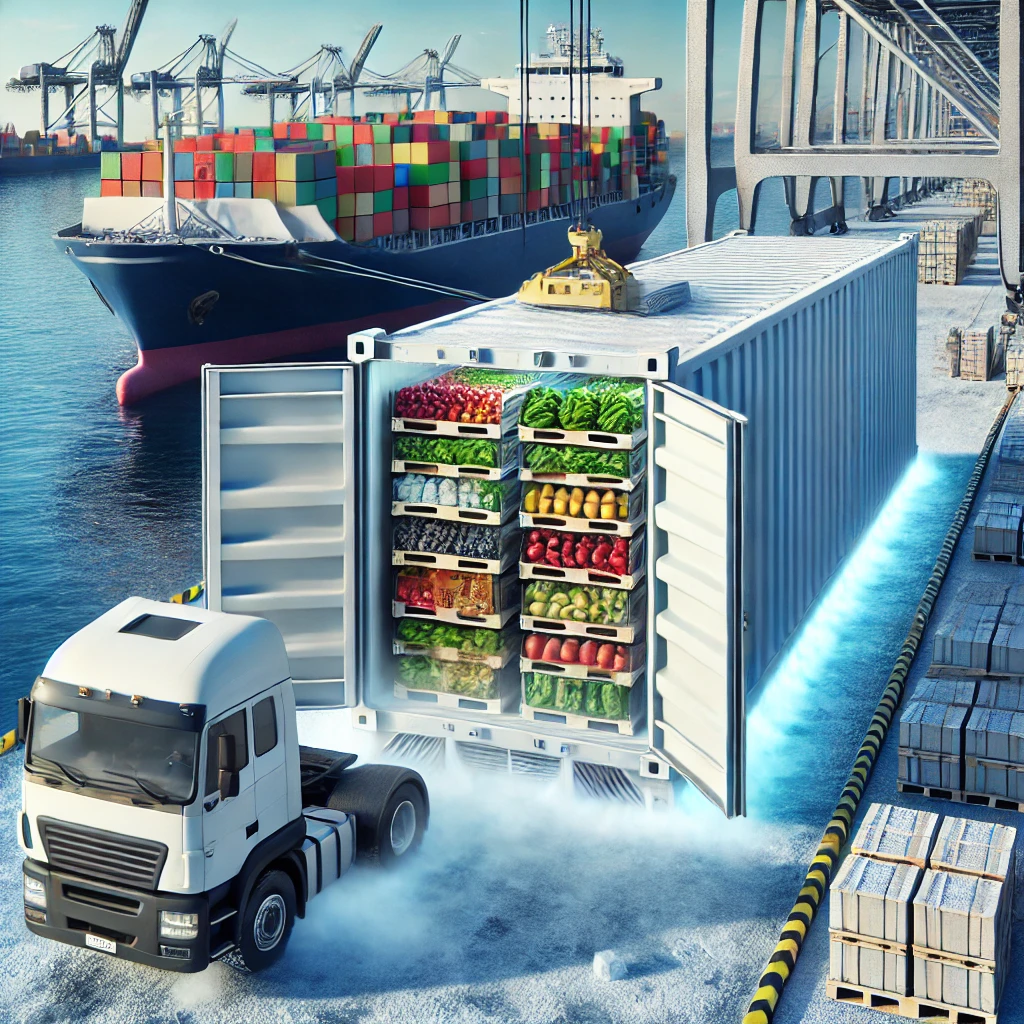In today’s globalized economy, the transport of perishable goods has become a critical aspect of supply chains, ensuring that products such as food, pharmaceuticals, and flowers reach consumers in optimal condition. One of the key innovations that have enabled the safe and efficient transportation of these temperature-sensitive items is the refrigerated container, also known as a “reefer” container. These containers are specially designed to regulate temperature and humidity, creating an ideal environment for transporting perishable goods over long distances.
In this blog post, we’ll explore the many benefits of using reefer containers for perishable goods transport and why they are essential to the cold chain logistics industry.
### 1. **Temperature Control**
The primary advantage of using reefer containers is their ability to maintain a consistent temperature throughout the transportation process. Perishable goods, such as fruits, vegetables, dairy products, and vaccines, often require specific temperature ranges to preserve their quality and prevent spoilage. Reefer containers are equipped with advanced refrigeration systems that can be set to specific temperatures, depending on the needs of the cargo.
For example, reefer containers used to transport frozen seafood can maintain temperatures as low as -60°C, while those used for fresh produce can be set to maintain temperatures between 0°C and 13°C. This level of precision ensures that perishable goods remain fresh and safe for consumption upon arrival at their destination.
### 2. **Extended Shelf Life**
Using reefer containers significantly extends the shelf life of perishable goods. By providing a controlled environment, these containers help to slow down the natural deterioration of food and other perishable products. This is particularly important for items that have to travel long distances across international borders or through challenging climate conditions.
For instance, fruits and vegetables that are transported in regular dry containers without refrigeration can experience rapid spoilage due to exposure to heat and humidity. However, when transported in reefer containers, they stay fresh for much longer, allowing producers to ship their products to global markets without compromising quality.
### 3. **Protection from External Conditions**
Reefer containers not only regulate temperature but also protect cargo from external factors such as humidity, dust, and contaminants. The insulation and sealing in these containers ensure that the cargo remains isolated from environmental hazards during transit.
This protection is particularly important for pharmaceutical products, which are highly sensitive to both temperature fluctuations and contamination. Many vaccines, for example, need to be stored within a narrow temperature range, and even a minor deviation can render them ineffective. Reefer containers provide the necessary level of security, ensuring that pharmaceuticals remain effective throughout the supply chain.
### 4. **Versatility in Cargo Types**
Reefer containers are incredibly versatile and can accommodate a wide range of perishable goods beyond just food and pharmaceuticals. Industries such as floriculture, biotechnology, and chemicals also rely on these containers for temperature-sensitive shipments.
For example, fresh flowers have specific temperature and humidity requirements to prevent wilting and extend their bloom life during transport. Reefer containers can be set to maintain optimal humidity levels and cool temperatures, ensuring that flowers arrive at their destination in perfect condition, ready for retail display.
Similarly, chemicals and biotechnology products often require strict temperature controls to ensure their integrity. Reefer containers provide the ideal solution for transporting these goods safely and efficiently.
### 5. **Energy Efficiency and Sustainability**
While the refrigeration systems in reefer containers consume energy, modern reefer containers are designed with energy efficiency in mind. Innovations in reefer technology have led to the development of more sustainable containers, including those powered by solar energy or equipped with energy-efficient cooling systems. These advancements help reduce the environmental impact of transporting perishable goods.
Additionally, reefer containers reduce food waste by preserving products during transport. In the absence of proper refrigeration, a significant portion of perishable goods could spoil before reaching their destination, leading to losses for producers and increased food waste globally. By using reefer containers, companies can reduce spoilage and contribute to a more sustainable food supply chain.
### 6. **Global Reach and Market Expansion**
One of the most significant benefits of using reefer containers is the ability to expand into global markets. With the assurance that perishable goods can be safely transported over long distances, producers and suppliers can reach new markets that were previously inaccessible due to logistical challenges.
For example, tropical fruits grown in South America can be exported to North America, Europe, or Asia without fear of spoilage. Similarly, seafood caught in coastal regions can be transported to inland markets while maintaining freshness. This global reach allows businesses to tap into new revenue streams and meet the growing demand for fresh and high-quality products worldwide.
### Conclusion
Reefer containers have revolutionized the transportation of perishable goods, offering temperature control, protection from external conditions, extended shelf life, and global market access. Whether it’s fresh produce, pharmaceuticals, or delicate flowers, these containers play a vital role in ensuring that temperature-sensitive products reach their destinations in optimal condition.
As the demand for fresh, high-quality products continues to grow, reefer containers will remain a cornerstone of cold chain logistics, helping businesses meet consumer needs while minimizing waste and preserving the integrity of perishable goods.
 عربي
عربي عربي
عربي